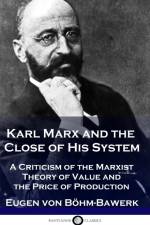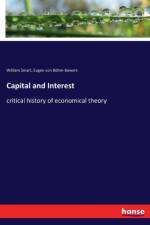von Eugen Von Bohm-Bawerk
39,00 €
Introduction, The problem of Interest, The Development of the problem, The opposition to interest in classical and Mediaeval times, The defence of interest from the sixteenth till the eighteenth century, Turgot's Fructification theory, Adam Smith and the development of the problem, The colourless theories, The productivity theories, The productive power of capital, The native productivity theories, The indirect productivity theories, The use theories, The use of capital, Historical statement, Plan of criticism, The use of capital according to the Say-Hermann school, The True conception of the use of Goods, Criticism of the say-Hermann conception, The Independent use: An unproved assumption, The Independent use: its untenable conclusions, The Independent use: its origin in legal fiction, Menger's conception of use, Final insufficiency of the use theory, The Abstinence theory, Senior's statement of the theory, Criticism of senior, Bastiat's statement, The labour theories, These theories agree in explaining interest as wage of the capitalist's labour, The english group, The French Group, The German Group, The Exploitation theory, Historical survey, Marx, Minor systems, The eclectics, The later Fructification theory,










